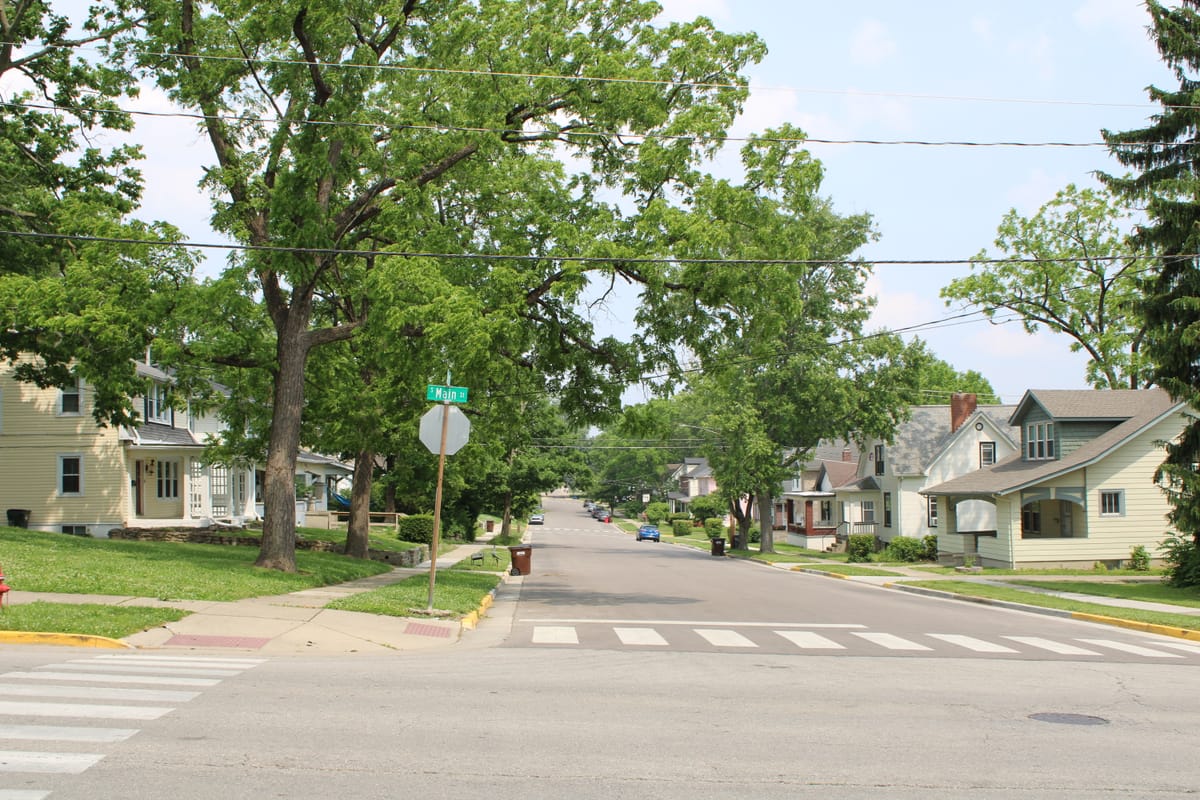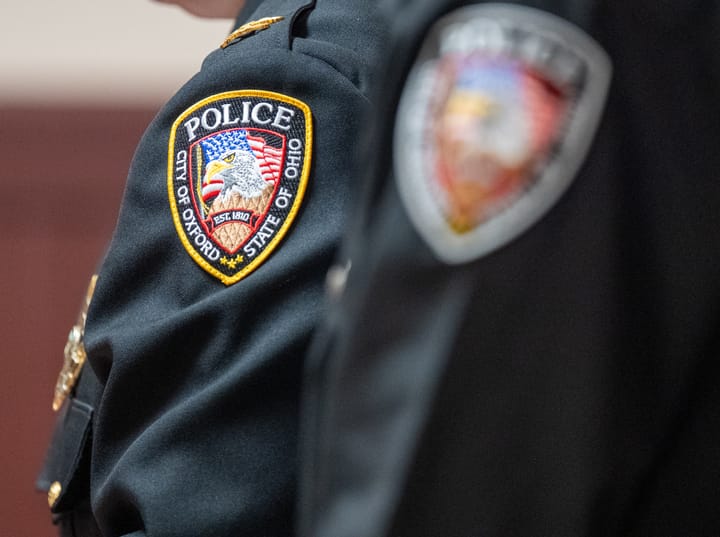Litter, noise citations hit seven-year low through May in Oxford
The Oxford Police Department issued less citations in spring 2025 than the previous six years. Police Lieutenant Adam Price says a number of factors including weather and staffing could have contributed.

East Collins Street isn’t long — less than 900 feet, excluding the branch that extends between McGuffey Hall and King Library on Miami University’s campus.
Despite its short length, the street holds a dubious record in Oxford, beating out much longer roads like East Church and South Poplar for the most litter citations each year since 2022.
The street’s record on noise violations isn’t far behind. The Oxford Police Department (OPD) issued 15 noise violations to East Collins residents in 2024 (the record that year) and 16 the year before, losing only to the 3,600-foot South Main Street.
Noise and litter violations are a problem throughout the Mile Square. An Oxford Free Press analysis found that since 2019, citations were most often issued to residents living between Main Street and Miami’s campus, where student rentals and fraternity houses dominate the market. This year, though, both noise and litter citations have hit a seven-year low through May.
Between January and May, OPD issued 40 litter citations this year, down from the previous six-year average of 58 citations during the same time frame. Citations since 2019 peaked in 2021 with 90 issued, but have fallen at or below 50 citations by May 31 each year since then.
OPD issued 43 citations for noise violations through May 31 this year, lower even than the 45 issued by that time in 2020 when Miami students left campus early due to the Covid-19 pandemic.
According to city legislation, it’s illegal to dispose of trash on public or private property in a way that “may become noxious, offensive, unsightly or injurious to others or to the public.” Property owners and tenants also have a responsibility not to allow trash to remain on their property. Offenders can be charged with a minor misdemeanor and may owe up to $150.
Oxford’s noise restrictions state that sound from electronic devices and amplifiers shouldn’t be “plainly audible” more than 25 feet away from the property where the devices are being operated at any time. The restriction also bars “yelling, shouting and singing” between 11 p.m. and 7 a.m. in a way that’s audible from more than 25 feet from the property line, “or at any time so as to annoy or disturb the quiet, comfort or repose” of people nearby. Violations are classed as minor misdemeanors, with escalating charges for subsequent offenses.
OPD Lieutenant Adam Price says violations could be down this year for a number of reasons. Most noise and litter complaints come from student parties, which depend on good weather. OPD has also been short-staffed this spring due to both retirements and injuries, limiting the department’s ability to enforce quality of life regulations.
“We are not staffed like we normally would be right now, and that really hits,” Price said. “If people are covering longer shifts and doing other things, they’re trying to get by.”
As for East Collins, Price said students living on the street hold a keg race each year. That event leads to heavier enforcement to keep things under control. South Main Street, which is home to several fraternity annex houses, used to see the heaviest noise and litter enforcement, but litter citations especially have dropped off since the pandemic.
For city officials, the impact of student parties is a concern. During a recent City Council meeting, Vice Mayor Chantel Raghu said her neighbors in the Mile Square were especially rowdy this year, and she called for better enforcement when students return in the fall. Mayor Bill Snavely agreed, calling for more efforts to cut down on confetti and other forms of litter around graduation, especially.
Most of OPD’s litter enforcement is focused on party trash, Price said. Other forms of trash in yards and on sidewalks may fall to code enforcement instead.
OPD relies on calls from the community to enforce litter and noise ordinances. Price said while some of the department’s enforcement efforts are proactive, people should call if they have specific concerns. Officers may give warnings on the first interaction and can only issue citations if they observe the violations themselves, so if issues persist, he encourages residents to call a second time.
Oxford used to treat litter and noise violations as criminal offenses but switched to civil citations more than a decade ago. Price said using citations instead makes it easier to follow up with students who may have left Oxford before their court dates when the offenses were criminal in the past.
While the police department is in the process of hiring new officers now, Price said raucous parties are part of living in a college town.
“I’ve been here 20 years, and it’s always going to be there,” Price said. “[Litter and noise violations] go hand in hand probably with alcohol and parties. It’s a college community, but we do our best.”
Violations are top of mind following Miami’s graduation last month, but new developments are unlikely over the summer. Since 2019, just three noise citations and three litter citations have been issued in June and July. OPD is intentional about enforcement at the start of each school year to ensure Miami students know litter and loud parties are against local ordinances, Price said, though the department can’t legally set quotas for the number of citations issued.




